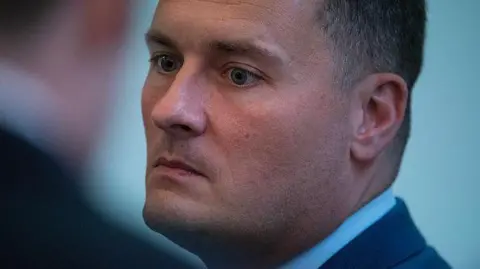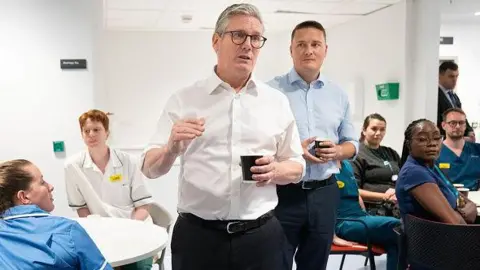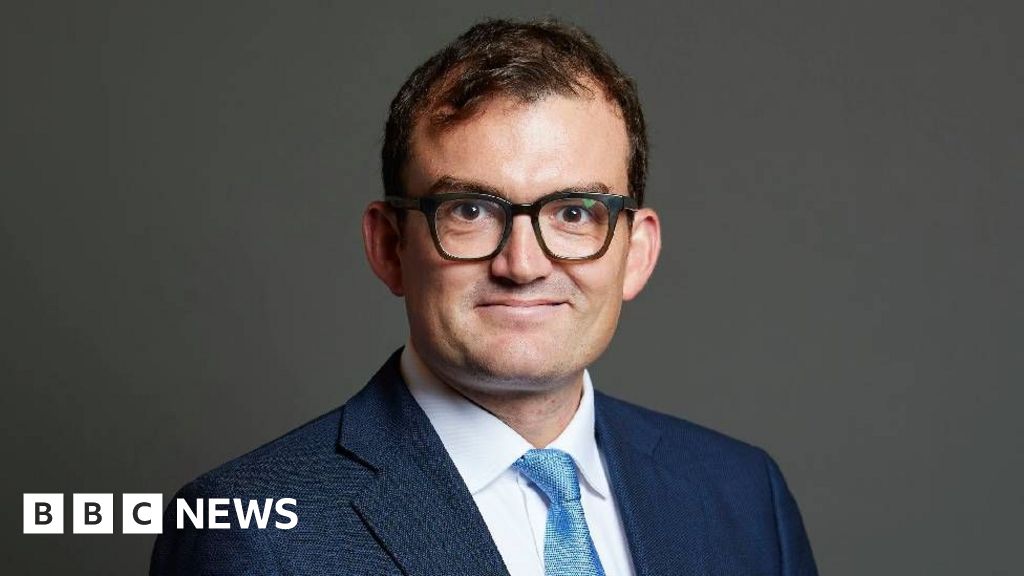ARTICLE AD BOX

 Getty Images
Getty Images
Wes Streeting has declared the NHS "broken"
There is growing unease within the NHS about the government’s "broken" messaging, the BBC has learned.
Senior sources in the health service have told the BBC they believe some of the claims have gone too far - and may result in patients being put off seeking help and causing lasting damage to staff morale.
When Wes Streeting was made health secretary in England, he declared the NHS "broken" - a phrase he and others in government have used repeatedly since.
That has been followed up recently with claims cancer is a "death sentence" because of NHS failings, while maternity services "shame" the nation.
But the government said it was important "to be honest" about the scale of the challenge.
The revelations come ahead of Mr Streeting addressing the Labour Party conference in Liverpool later.
The BBC has spoken to senior people in the health service as well as officials within NHS England.
One hospital leader told the BBC: "We understand the politics of what the government is doing - they feel they need establish in the public’s mind what a difficult inheritance they have been given.
"It's something the Tories did very effectively in 2010 and even back in 1979 over the winter of discontent.
"But there's an increasing nervousness that if it continues much longer it could spook patients and make it really difficult to raise staff morale. Hope is important."
'Wrong tone'
Similar views are being expressed privately at NHS England. Sources there said officials had made the government aware of its concerns about the messaging and is monitoring the impact it is having on patients coming forward for check-ups and appointments.
"We are not seeing anything in the figures to suggest it's having an impact, but we are keeping a close eye on it," one source said.
Another hospital leader said: "If the government isn’t careful it will cause lasting damage. Yes, we know there are many problems, but there is also lots of great care out there that is not being recognised.
"We need to see a shift - the cancer death sentence phrasing strikes completely the wrong tone."
The death sentence claim was made in a written response from government to a story covered by the BBC last week about the variation in waiting times by different cancers, and in the House of Commons by Streeting on 12 September, the day Lord Ara Darzi published his report into the state of the NHS.
In both cases, it was suggested Lord Darzi’s report found cancer was "more likely to be a death sentence for NHS patients than those in other countries".
Lord Darzi did not use the phrase death sentence in his report, although he did point out the UK had higher cancer mortality rates. Lord Darzi has been approached for comment, but is yet to respond.
When asked for a response to the language, Cancer Research UK pointed the BBC to data showing that one in two people diagnosed with cancer now survive at least 10 years.
Meanwhile, the phrase "national shame" was used by Mr Streeting in response to a report by the Care Quality Commission report last week, which found two in three maternity units were not safe enough.
Sir Julian Hartley, of NHS Providers, which represents health leaders, said it was important to recognise what the NHS was doing well and the efforts of staff who were working "flat out".
"There’s a lot to be proud of despite ongoing concerns and difficulties," he added.

 Getty Images
Getty Images
Sir Keir Starmer and Wes Streeting addressed NHS staff at University College London Hospital earlier this month
Thea Stein, chief executive of the Nuffield Trust think-tank, who was running an NHS trust until last year, said those working in the NHS recognised the service was struggling and there was a "power" in having problems talked about openly.
But she added: "At the same time language is important. The problem with the phrase 'broken' is that people may think something that is broken needs to be thrown away."
She said she feared that could have an impact on patients, staff and young people who are thinking about a career in the health service.
"It is important that the government now puts even more emphasis on repair, rebuilding and hope, alongside the 'broken' message," she said.
A spokesperson for the Department of Health and Social Care defended the approach being taken.
"Patients and staff can see the NHS is going through the biggest crisis in its history. They want the government to be honest about the scale of the challenge and serious about fixing it.
"Wes has said since the election while the NHS is broken, it's not beaten.
"We are going to work with NHS staff to develop a 10-year plan to turn the NHS around together."

 8 months ago
30
8 months ago
30








 English (US) ·
English (US) ·